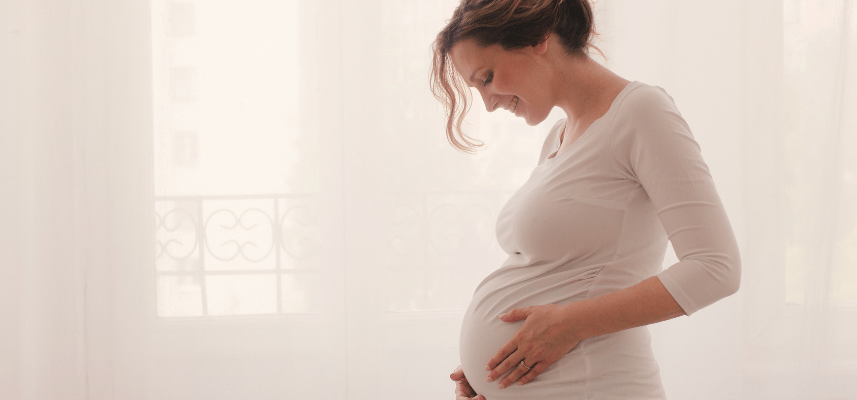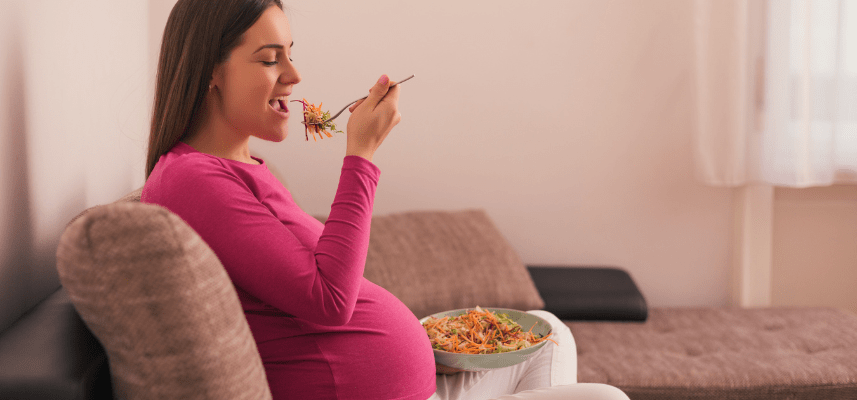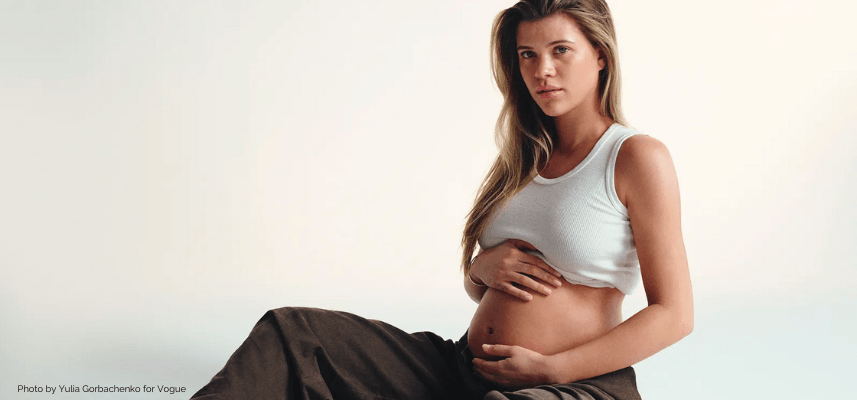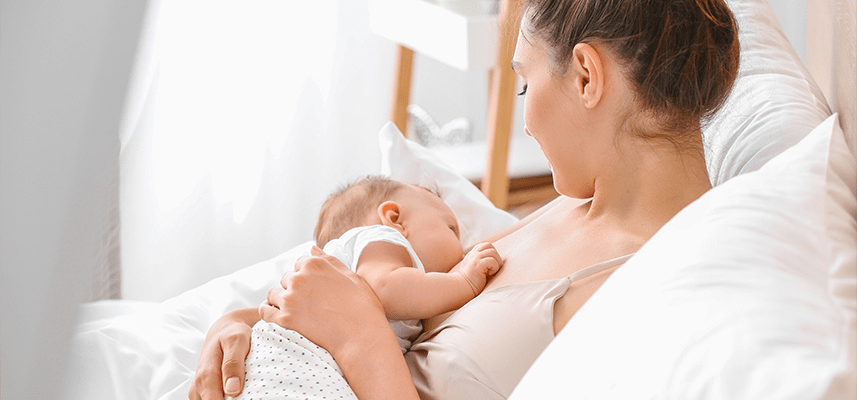During pregnancy, you are not only responsible for your well-being but also the well-being of your growing baby. Making sure to take the proper vitamins, attend your doctor's appointments, and eat the right foods can be overwhelming at first. But some of the most important lifestyle changes don’t come from what you need to add to your routine but rather from what you need to subtract.
Ensuring your baby's development and health comes down to many factors, but one of the most important is eliminating their exposure to toxins in the womb. Some of your pre-pregnancy habits may pose dangerous consequences to your little one if continued into pregnancy. Don’t stress yet, mama—this is our ultimate guide to the dos, don’ts, and faqs during pregnancy!
Foods To Avoid During Pregnancy
You’ve probably heard the laundry list of forbidden foods during pregnancy by now. Though it may suck giving up some of your favorites for nine months, it’s for a good reason. Because your immune system is working so hard during pregnancy trying to support both you and your growing baby, you are at an increased risk for developing viruses and infections. Not only is food poisoning a drag, but it can sometimes compromise your baby's brain development and lead to premature birth.
As a general rule for eating while expecting follow “cooked is best.” Raw fish is an especially dangerous food to eat while pregnant because it can carry harmful bacteria. Some types of fish like Swordfish, King Mackerel, or Tilefish also have very high levels of mercury, which can be damaging to your little one’s growth and development in the womb. Similarly, some dairy products (unpasteurized milk, soft cheeses, including blue cheese, etc.), raw meat or undercooked meat, uncooked/raw eggs, unpasteurized juice, and some deli meats can be the perfect breeding ground for bacteria that cause salmonella, listeria, and other harmful illnesses.
After your little one is born, you can get back to eating your favorites. Want more details on what to eat postpartum? Learn about how diet impacts breastfeeding outcomes.
Exercising While Pregnant
Pregnant and want to stay active? You go, mama! Contrary to popular myths, many forms of exercise are completely safe while pregnant. In fact, it can be extremely beneficial for both mom and baby! It also can provide health benefits after delivery while breastfeeding; there is zero evidence that exercise will negatively impact the taste or quality of your breast milk.
If you’re looking to exercise while expecting, consider adding running, walking, or prenatal yoga to your routine! Research shows that running or walking during pregnancy can lower your risk of health complications, improve your postpartum well-being, and reduce your need for emergency C-sections. Studies also show that pregnant women who do prenatal yoga show decreased levels of anxiety, stress, and duration of labor, while also showing increased pain tolerance.
Just be sure to drink plenty of water, follow a balanced diet, and get lots of rest to ensure both you and your baby have everything you need.
For more information on running while pregnant, check out our blog, where we break it down for you. Want to exercise but don’t know where to start? We’ve got you. Check out this blog, which discusses our favorite forms of movement for pregnancy by category.
Smoking, Drinking, Drugs, Etc.
Tobacco and alcohol consumption as well as illegal drug use and the use of certain prescription drugs are unsafe for your baby in any amount. Your placenta cannot metabolize alcohol, which means that when alcohol enters your bloodstream, it also enters your baby’s bloodstream. Whatever your blood alcohol level is will be your unborn child’s blood alcohol level. Drinking alcohol when pregnant can lead to your child developing fetal alcohol syndrome disorders (FASDs), including fetal alcohol syndrome (FAS), which is often associated with physical deformity and mental disabilities throughout life.
Tobacco use while pregnant can stunt your child’s growth in the womb and can affect them after birth through second-hand smoke inhalation. Smoking during pregnancy leads to low birth weight, in fact, your child will be two times more likely to be underweight at birth in all maternal age groups. Additionally, smoking during pregnancy increases the odds of premature birth by 21%, increasing their risk of Sudden Infant Death Syndrome (SIDS).
Breathing second-hand smoke is dangerous for you, as well, and can lead to health complications, including lung cancer. Illegal drug use and prescription drug abuse are dangerous for your baby, too, and should be avoided at all costs. The use of these substances can cause infants to be born addicted and have to go through Neonatal Abstinence Syndrome and withdrawal at birth. This can lead to long-term health consequences for your child, including seizures, jaundice, and birth defects.
Managing Morning Sickness or Nausea
When you’re pregnant, significant hormonal changes take place within your body. The symptoms commonly associated with "morning sickness” are brought on by the natural upswing in pregnancy hormones occurring in your first trimester, but can last for the entirety of your pregnancy. Other bothersome symptoms induced by hormonal fluctuations during pregnancy may include fatigue, poor concentration, bloating, swelling, mood swings, heartburn, constipation, bleeding gums, and more.
Sounds fun, right? But don’t stress. Hormonal levels typically stabilize in the second trimester. This is when morning sickness tends to subside (though, in some cases, morning sickness can last the entirety of your pregnancy) and energy levels begin to rise again.
Extreme morning sickness—or hyperemesis gravidarum—can cause weight loss and dehydration, which can occasionally require brief hospitalizations. Symptoms include vomiting more than 3-4 times a day, dizziness, lightheadedness, dehydration, loss of weight (>10lbs), and more. If you are experiencing these symptoms, please reach out to your healthcare provider immediately.
While you’re in the trenches, many moms have luck eating small but frequent meals and avoiding any foods with strong smells, tastes, or temperatures—bland is best! Be sure to get as much rest as possible, stay hydrated, and avoid any foods that have caused repeated bouts of nausea or vomiting.
Household Chores to Avoid During Pregnancy
You’ve been eating well, taking your vitamins, and avoiding alcohol. But what about all the household work that needs to be done? Many chores require heavy lifting, use of chemicals, and exposure to toxins, so knowing what is safe for you and your baby can be tricky. Though many basic household tasks are safe for pregnant women, there are a few chores that should be avoided.
Reference this list and ask your partner or a friend to help with these tasks to keep you and your baby safe:
Red: What to Avoid
- Avoid chemical-heavy cleaning products. Pregnant individuals should be cautious about exposure to certain chemicals in cleaning products, as some of them can pose health risks to both mother and baby. Chemicals in harsh cleaning products like ammonia, chlorine bleach, phenols, and parabens, have been linked to risk of miscarriage, low birth weight, and other health problems. Opt for natural cleaning products such as vinegar, baking soda, and lemon for a safer alternative. If you must use chemical products, make sure you wear gloves, cover your mouth to avoid inhalation, and ensure the room is well-ventilated.
- Avoid lead paint. If your home was built before 1978, lead may be present in the paint, pipes, and other systems. Lead is highly toxic to unborn babies and young children. Any home remodeling, paint-removal, or wallpaper removal projects should be avoided in a home that may contain lead when young children or pregnant people are present. When cleaning an older home, dusting and sweeping with a wet cloth can help contain lead dust particles more effectively than dry dusting. Regardless of pregnancy status, you should never try to remove lead paint yourself. Call the National Lead Information Center to learn what to do about lead in your home at 1-800-424-LEAD.
- Avoid pesticides. Pesticide use may be linked to developmental impairments in children. Avoid using pesticides in and around your home, including sprays, bug bombs, flea collars, and flea and tick medications.
- Avoid cleaning the cat’s litter box. Cat feces can contain a parasite that causes the infection toxoplasmosis, which can cause vision loss, brain damage, or even be deadly to your developing baby. This parasite is more common in cats who hunt outdoors and eat prey; if you have an indoor-only cat, your risk of toxoplasmosis is much lower. If cleaning the litter box is unavoidable, wear disposable gloves and wash your hands thoroughly afterward. Keep the litter box cleaned daily, as the risk of transmission increases after 1-5 days.
Yellow: Use Caution with these Tasks
- Avoid paint fumes. If you’re planning to paint the baby’s room, choose a paint labeled “Low-VOC” or “water-based,” as these paints may release fewer harmful chemicals than other types of paint. Research shows that the risk to the baby with exposure to these types of paint fumes may be low, but the exact risk is not known. Delegate this task when possible, and keep the house well-ventilated.
- Be careful when carrying heavy loads. Your healthcare provider will provide recommendations on how much weight is safe to carry. As your belly grows each trimester and hormonal changes cause your joints to loosen up, carrying heavy loads can strain your back and increase your risk of injury. Be aware when carrying awkward or heavy objects, like furniture, large laundry baskets, or heavy buckets.
- Avoid standing for too long or bending repeatedly. Standing too long, especially during the later stages of pregnancy, can contribute to low back discomfort and lower limb circulation issues. Repetitive strain from bending can also contribute to low back pain. Take your time completing repetitive movements and standing tasks, and take frequent breaks to avoid excess strain.
- Avoid climbing ladders. Let someone else clean out the gutters and change the lightbulbs. Your risk of falls increases as your center of mass changes during pregnancy, so don’t take the risk of falling on your belly from an elevated height.
Green: Helpful Resources
- Speak to your healthcare provider if your job requires the use of chemicals or physical labor to be sure you’re taking the steps necessary to keep you and your baby safe.
- As mentioned above, exercise is safe and effective for reducing the risk of injury and maintaining cardiovascular health during pregnancy. Speak to your healthcare provider if you plan to change your current level of physical activity.
- Compression stockings and abdominal support can help keep you comfortable during activity, especially during the later weeks of pregnancy. Your insurance might even cover it!
Ask For Help!
It is okay to ask for assistance with certain chores or tasks. Remember to pace yourself so that you are not doing too much at once. Don’t be afraid to take breaks and ask for help when needed—it may be essential in keeping you and your baby healthy during pregnancy!
References
-
https://www.nhs.uk/pregnancy/keeping-well/infections-that-may-affect-your-baby/
-
https://americanpregnancy.org/healthy-pregnancy/is-it-safe/mercury-levels-in-sushi/
-
https://www.fda.gov/food/people-risk-foodborne-illness/dairy-and-eggs-food-safety-moms-be
-
https://americanpregnancy.org/healthy-pregnancy/is-it-safe/deli-meats/
-
https://my.clevelandclinic.org/health/diseases/15677-fetal-alcohol-syndrome
-
https://www.stanfordchildrens.org/en/topic/default?id=neonatal-abstinence-syndrome-90-P02387











